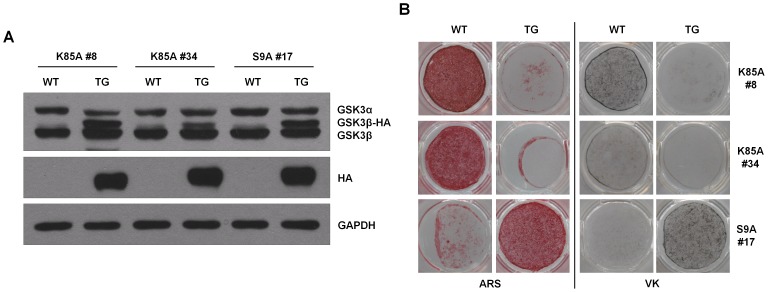Figure 4. GSK3β regulates osteoblast differentiation in ADSCs of transgenic mice expressing GSK3β mutants.
(A) Immunoblot analysis to detect transgene expression in ADSCs purified from the adipose tissues of C57BL/6 mice expressing a transgene (TG) encoding HA-tagged GSK3β or wild-type littermates. As in Fig. 1A, HA-tagged GSK3β protein migrates at a higher molecular mass than that of endogenous GSK3β. The proper expression of HA-tagged GSK3β proteins was further confirmed by immunoblotting with anti-HA antibody. GAPDH served as a loading control. Two independent lines of catalytically inactive GSK3β (K85A #8, K85A #34) and one line of constitutively active GSK3β (S9A #17) were tested for transgene expression. (B) ADSCs purified from GSK3β-K85A TG mice were typically cultured in osteogenic differentiation medium for up to 3 weeks. In contrast, since ADSCs from GSK3β-S9A TG mice respond more rapidly to osteogenic medium, the cells were typically cultured only for 2 weeks. Matrix mineralization was determined by ARS (left) and VK (right) staining. These results are representative of at least three independent experiments.

